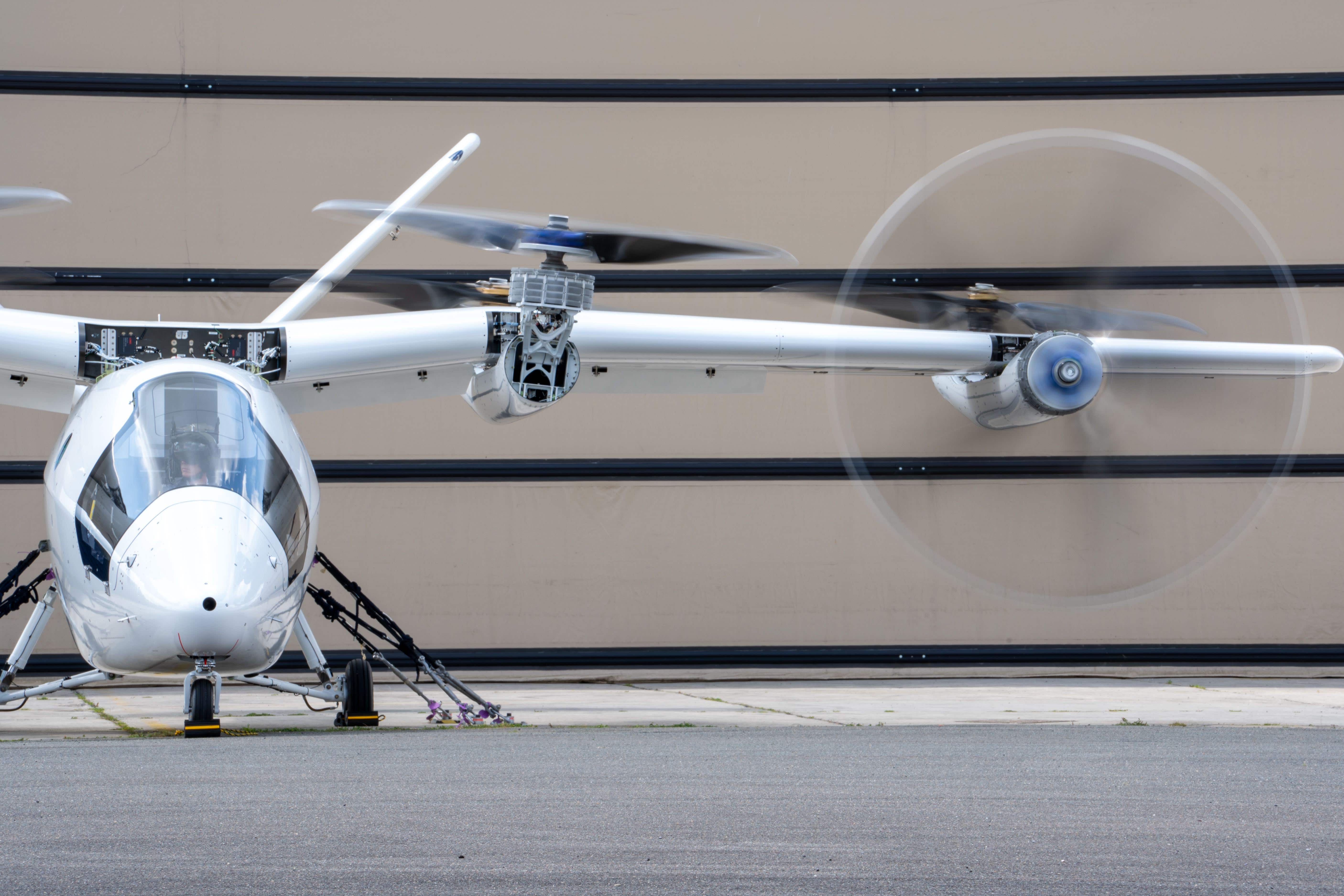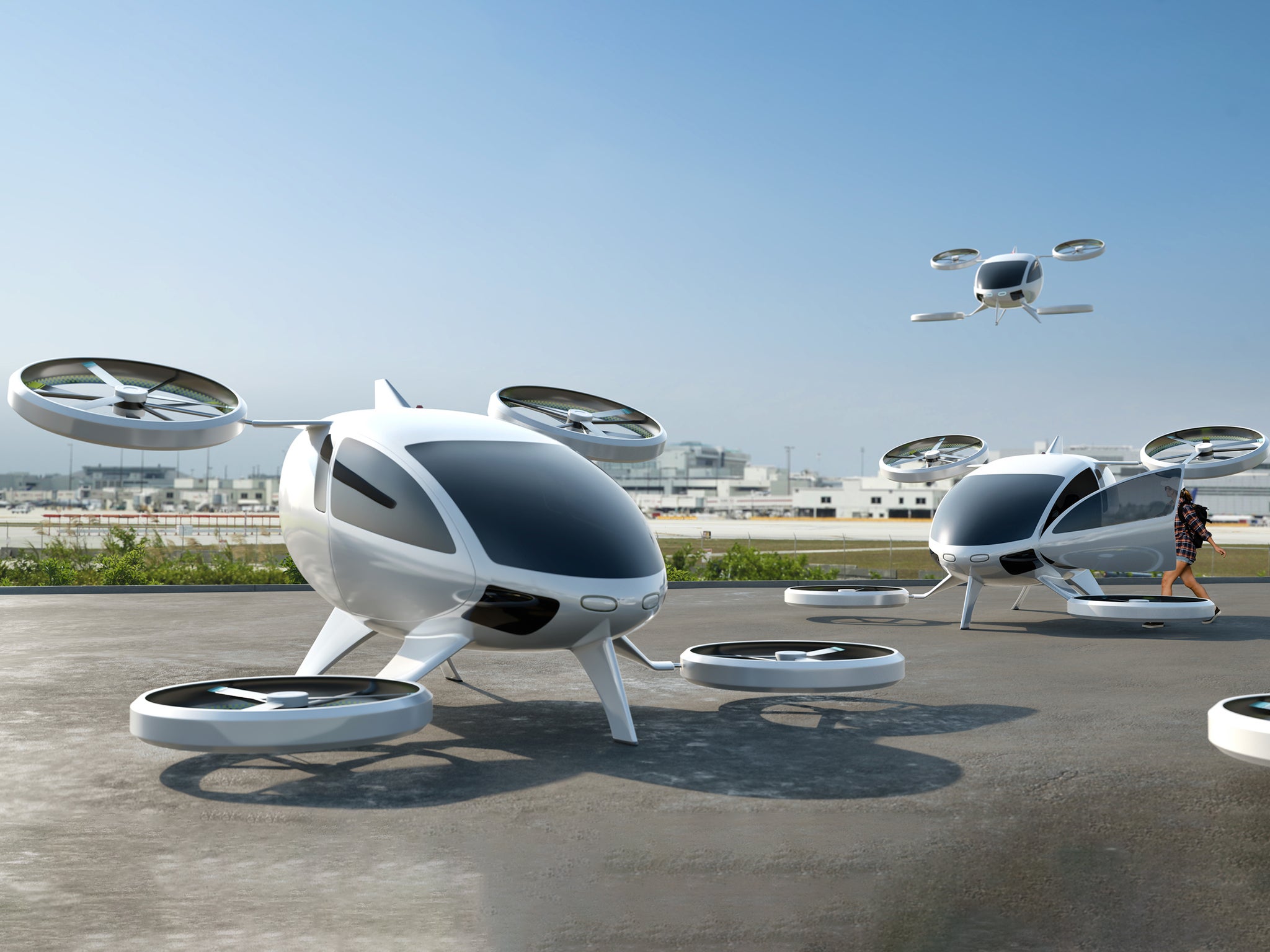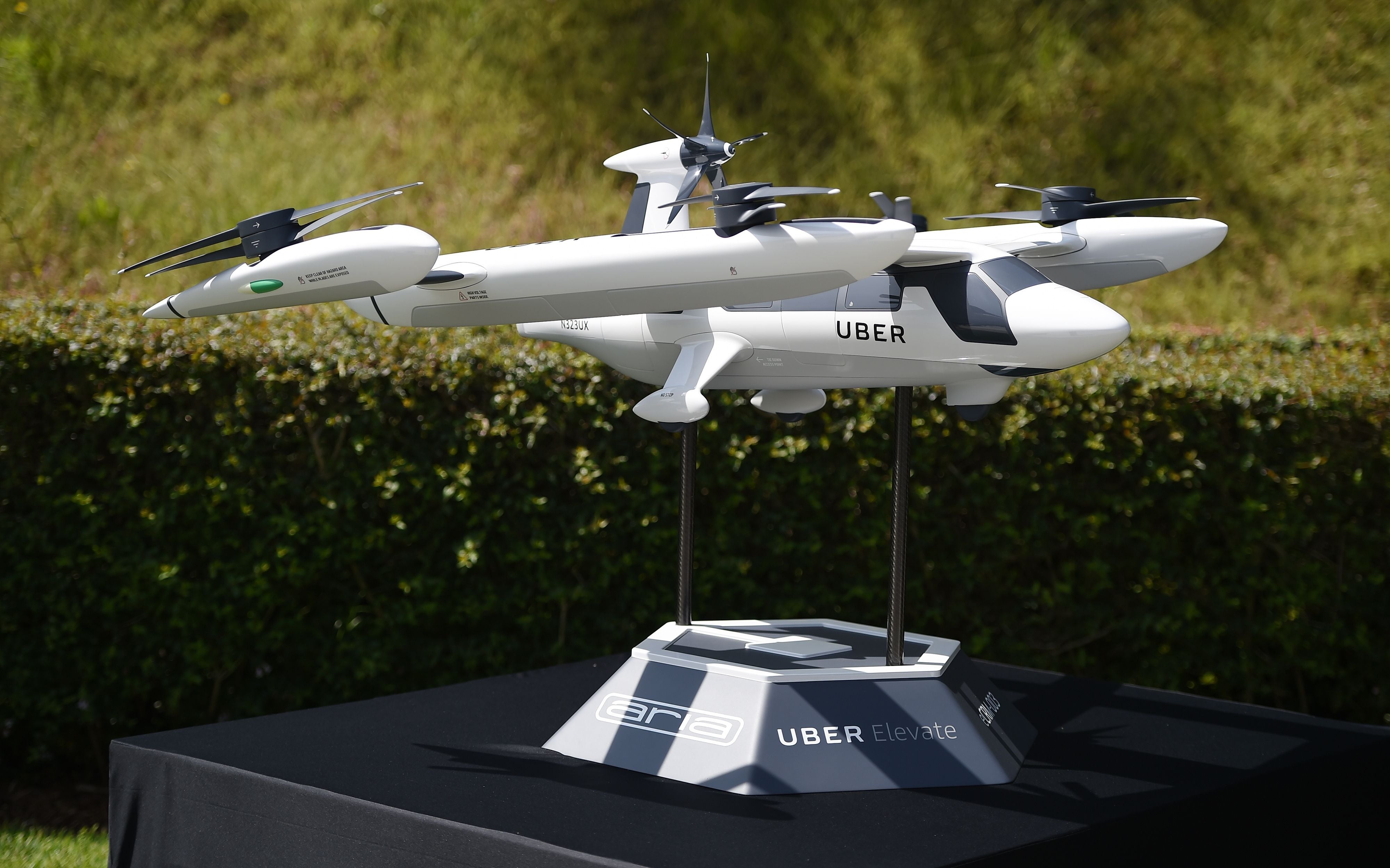Flying taxi boss reveals how much they expect an average ride to cost
The government published a plan in March, which included an ambition for piloted eVTOL flights in the UK by 2026

Your support helps us to tell the story
From reproductive rights to climate change to Big Tech, The Independent is on the ground when the story is developing. Whether it's investigating the financials of Elon Musk's pro-Trump PAC or producing our latest documentary, 'The A Word', which shines a light on the American women fighting for reproductive rights, we know how important it is to parse out the facts from the messaging.
At such a critical moment in US history, we need reporters on the ground. Your donation allows us to keep sending journalists to speak to both sides of the story.
The Independent is trusted by Americans across the entire political spectrum. And unlike many other quality news outlets, we choose not to lock Americans out of our reporting and analysis with paywalls. We believe quality journalism should be available to everyone, paid for by those who can afford it.
Your support makes all the difference.Flying taxis could be as cheap as an Uber ride, an aircraft manufacturer has claimed, also adding that they could be here sooner than we think.
Vertical Aerospace said it expects its products will initially be targeted to premium airline passengers for airport transfers, but will “evolve” and become “very affordable” once production grows.
The Bristol-based company hopes to receive regulatory approval for its eVTOLs, which stands for electric vertical take-off and landing aircraft, by the end of 2026, with commercial flights beginning in the following year.
It has started ground tests of its most advanced prototype, named VX4.
Vertical Aerospace chief commercial officer Michael Cervenka believes the technology will enable quicker and cleaner journeys across short distances compared with road or rail transport.

In an interview at Farnborough Air Show, Hampshire, he told the PA news agency: “Where it starts to become affordable is, we’ve got a vehicle that can fly lots of times a day, can carry lots of passengers, needs very little maintenance, is very efficient to operate.
“Already, without needing lots of fancy new technology, the potential is for this aircraft to be about the same cost as hiring an Uber.
“We’re selling the aircraft. Our customers will set the prices (for journeys).”
Mr Cervenka said eVTOL journeys will be less than 100 miles and are likely to be in three categories: airport shuttles, between locations with “gaps in ground transportation” such as between Manchester and Leeds, and sightseeing trips.
He added: “We’re going to be supply-constrained on day one.
“We’re going to gradually roll out tens to hundreds of aircraft.
“It’s going to take some time before we ramp up to thousands of aircraft.
“A lot of the initial use cases will be first and business class passengers connecting with flights.
“But actually that’s how you enable the market to grow.
“If you think about the journey Tesla went on, Tesla’s first vehicle was a very expensive vehicle that nobody could afford, and then that enabled the electric car industry to grow.”

The Conservative government published a Future of Flying plan in March, which included an ambition for piloted eVTOL flights to begin in the UK by 2026, and pilotless flights by 2030.
Mr Cervenka claimed the aircraft will have several advantages over helicopters.
“A helicopter is extremely expensive,” he said. “We all know some of the safety challenges helicopters have faced. They’re pretty noisy. Never mind the environmental impact.
“We have this amazing ability with electrification, to replace a very complex, expensive, mechanical system – that has lots of single point failures – with a series of electric motors and batteries.
“That enables us to completely change how you design the aircraft.”